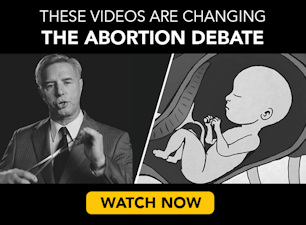Pro-Choice author Miriam Claire wrote a book called The Abortion Dilemma: Personal Views on a Public Issue. In her research, she interviewed a disabled man, Glenn Little, then president of the Disabled Persons Association in Victoria, Australia. Little had cerebral palsy, a condition that causes severe muscle spasms and prevented him from walking normally. His condition was caused by brain damage incurred during birth.
Despite his disability, Little told Claire he was happy to be alive…
If I had been given the choice about whether I wanted to live with my brain damage or to be allowed to die, I would have chosen to live…
I honestly don’t think I’ve ever heard any disabled person say that they would prefer not to have been born. That’s after 20 odd years of mixing in and out of the disabled community. If another disabled person and I decided to have a child and we were told that the child would be born disabled, we would go ahead and have the child… I think that if you find out during pregnancy that the baby is likely to have a disability you will find nine times out of ten that they won’t know the severity… The child might well grow up into someone like me or any of the other people you have met here at the Association today. Should we have been aborted? It’s not just a question of what people need in the way of assistance – it’s also a question of what they can give.(1)
Millions of men, women, and children live with the challenge of a severe chronic illness or disability. Little eloquently speaks for them when he says that his life is worth living.
Sadly, Claire does not seem to get the message. Later in the book, she argues that women who know their babies will be disabled should abort or face the burden of caring for their disabled children alone. Claiming that the only reason a woman would refuse to abort her disabled baby is religious belief, Claire says:
In my view, asking the community to fund personal religious beliefs is a questionable way to approach parenthood. If you knowingly bring a disabled child into the world, you should be able and willing to pay for all costs associated with caring for that child…. A surprise disability that emerges after birth is clearly a different matter.(2)
Disabled human beings are people, not someone’s “religious belief.”
In arguing that disabled or sick babies whose mothers refuse to abort them be denied healthcare and other services because these services cost money, Claire puts financial wealth (her own, as a taxpayer, as well as the nation’s as a whole) ahead of human life. Despite Little’s eloquent words, Claire has little sympathy for the disabled or for parents who choose to allow them to live. She sees these babies as a burden.
It is sad that despite being face to face with Little, despite hearing him say he was happy to be alive, she would have denied him vital, possibly life-saving services if his mother had been poor and had known of his condition before birth.
If Claire’s opinion ever becomes US policy, and services are denied to disabled children, it would put immense pressure on mothers to abort. Women and families who could not afford the high costs of caring for a disabled child alone would be faced with an insurmountable challenge. This would lead to coerced “choices” for abortion among poor families who know their children will have health problems and fear the expense.
Although opinions on government programs vary, most pro-lifers believe that disabled children should have every chance to live happy, productive lives regardless of financial burdens. Claire’s view shows the hardheartedness of pro-abortion activists who devalue disabled lives.
1, Miriam Claire The Abortion Dilemma: Personal Views on a Public Issue (New York: Insight Books, 1995) 199
2. Claire, 202








